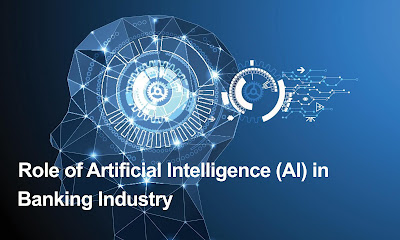Role of Artificial Intelligence (AI) in Banking Compliance
Today, maintaining Artificial Intelligence (AI) in Banking Compliance in the financial regulatory environment requires much more than just managing numbers. As per certain regulations, monitoring fraudulent trading practices isn’t enough and the firms are also required to monitor communications throughout a transaction or trade life cycle. For this, it’s important to obtain additional information regarding monitored users and their activities. Such information might include relationship discrepancies, behavior anomalies or any other fluctuations in trade data or communication.
Fintech and Regtech
Fintech, the combination of finance and technology, is gradually transforming the financial industry. Although at this point we are just at the beginning of the revolution, the effects would soon be evident if the banks and other financial institutions continue to invest in the technology. With fintech, there is another term which is gaining prominence and that is regtech, which includes the use of latest technology in regulatory procedures. Regtech is quite similar to fintech and are related to cloud and analytics technology but the term regtech is applicable to more specific space – compliance and regulation.
Regtech application in financial institutions
Financial institutions are these days, encountering exacting regulations and are constantly trying to update their technology in an attempt to provide the regulators with the data they require. The procedure also demands to be secure, fast and cheap. For finance communications compliance, an excellent way of improving the compliance process is to utilize the machine learning technologies. The advent of reg tech has helped banks save money by making compliance based business processes automated, which in turn also enhances fraud detection and productivity. However, they also need to take care that the technologies fit into their current work-flow. Artificial intelligence can bring significant improvements in detecting compliance issues, decision making, and user monitoring.
Reducing workload
Artificial Intelligence (AI) is one powerful technology which is gaining immense popularity for its ability to identify fraud even through unrelated data sets. With growing regulations, big financial institutions are allocating a number of people to regulatory compliance management. A recent study indicated that financial institutions allow 10 to 15 percent of the total workforce to compliance, governance and risk management. Also, the best professionals in this field are in high demand that hiring them becomes difficult as well as expensive. In this scenario, AI-driven reg tech has emerged as a savior in the financial industry.
How AI benefits financial institutions
One of the most important applications of AI in the financial sector is to convert unstructured data like video, voice or images into actionable information. Some institutions are already using voice analysis for identification and authentication of customers remotely. Voice and image recognition based AI techniques are also being used for behavior profiling and risk identification. Identity verification is another important aspect of AI. Traditionally, only expensive and complex software scan and computer identity documents accurately. Using AI, the organizations can achieve high accuracy in document identification that the users upload using commodity technology like low-resolution smartphones.
In addition to all the benefits that AI can bestow on the banking sector, there are also certain downsides. AI alone cannot make up for a great solution to compliance issues. However, the combination of data science solution and AI can present a great and affordable solution. AI has proven techniques of exposing suspicious transactions and entities that could strengthen regulatory compliance manifold.




Comments
Post a Comment